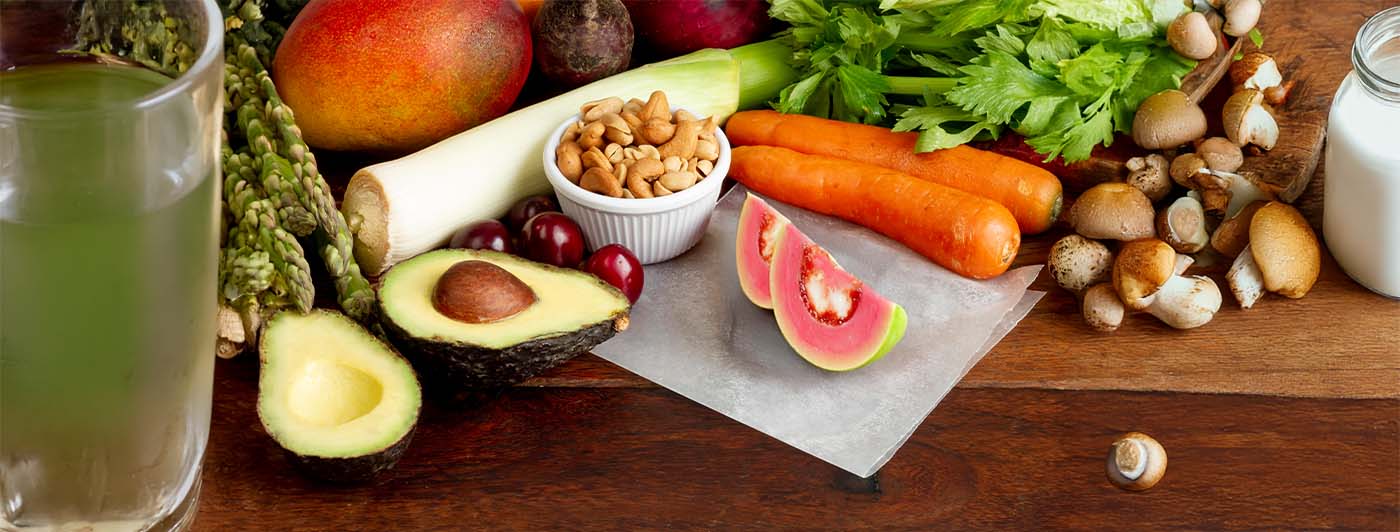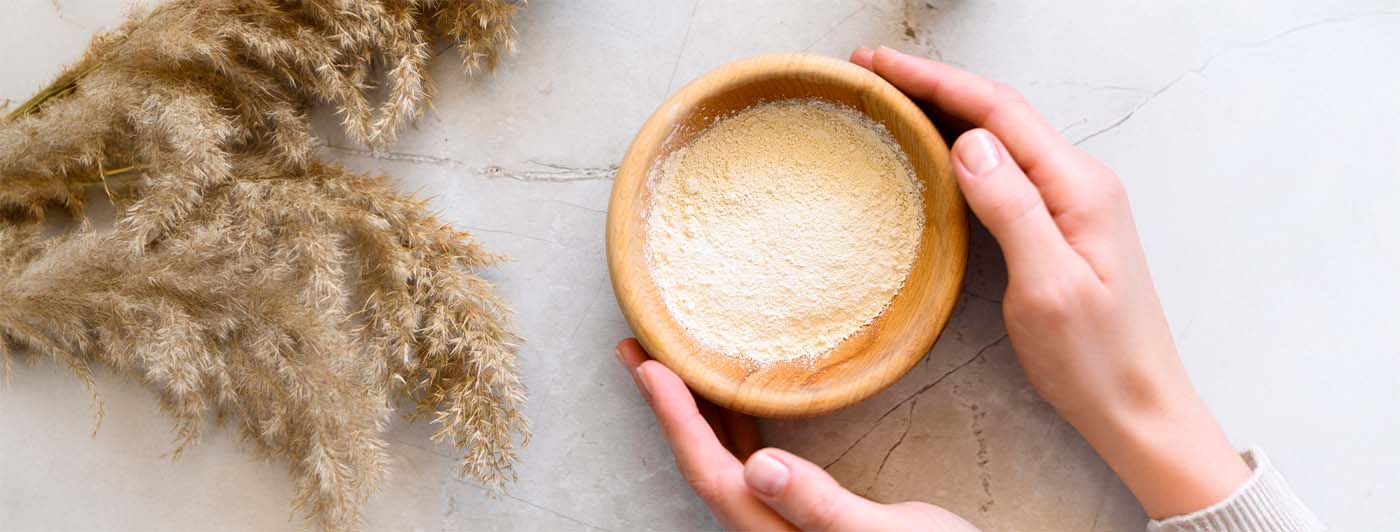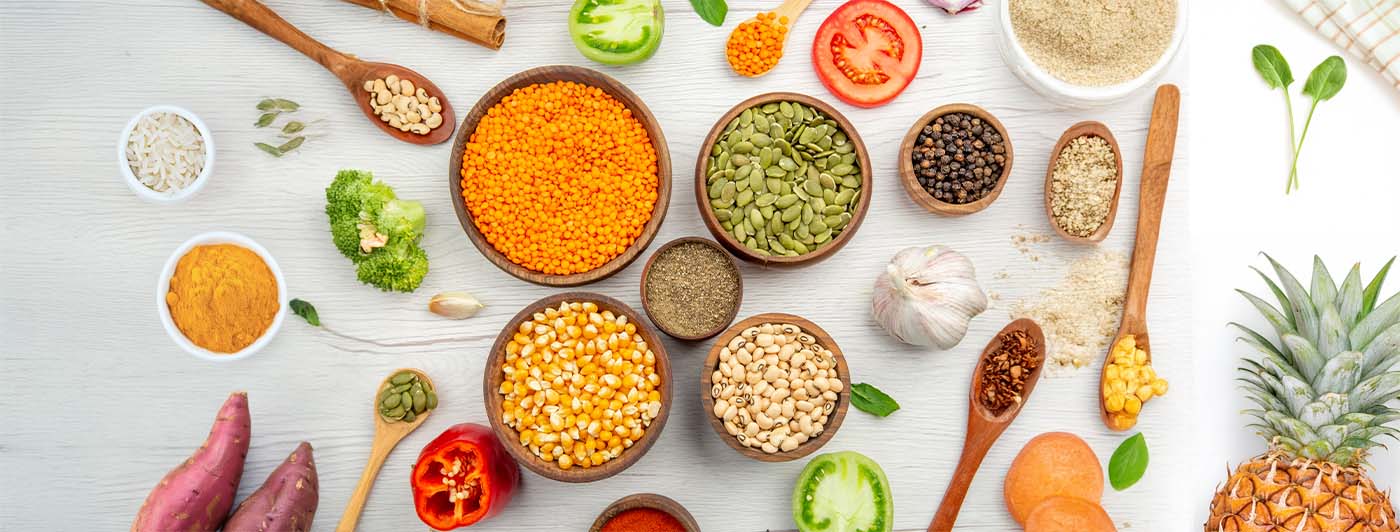Think you need tons of meat or endless shakes to build muscle? Not quite. The real secret lies in a powerful amino acid — leucine — that triggers muscle growth and repair naturally.
Building muscle isn’t just about lifting weights — it’s also about fueling your body smartly.
Leucine rich foods are essential for activating muscle protein synthesis, helping you grow stronger and recover faster.
In this article, we explore 11 powerful leucine-rich foods that support natural muscle gain — especially for vegetarians and clean eaters who prefer whole foods and plant protein over synthetic supplements.
Let’s get into the science-backed, muscle-friendly options that belong in your kitchen.
Why Leucine is Essential for Muscle Building
Leucine is one of three BCAAs (along with isoleucine and valine) and is considered the most potent trigger for muscle protein synthesis (MPS) — the process that builds new muscle tissue. Think of it as the "on switch" for muscle growth.
Unlike other amino acids, leucine can independently stimulate MPS via the mTOR (mammalian target of rapamycin) pathway — a cellular signaling system crucial for cell growth and muscle repair. In simpler terms: leucine tells your muscles to grow.
Incorporating leucine rich foods into your diet is essential to:
-
Speed up post-workout recovery
-
Minimize muscle breakdown during calorie deficits
-
Improve lean muscle gain, especially when paired with strength training
-
Enhance athletic performance and endurance
Now that you understand its importance, let’s explore the best natural sources of this powerful amino acid.
11 Best Leucine Rich Foods
1. Lentils
Lentils may not be the first thing that comes to mind for building muscle, but they offer a decent amount of leucine (around 1.3g per cup cooked), along with slow-digesting carbs, iron, and plenty of dietary fiber. Pair them with rice to form a complete protein and amplify the muscle-building impact.
They’re also high in fiber, which promotes gut health — a critical factor in nutrient absorption and metabolism. As one of the most accessible leucine rich foods, lentils are perfect for plant-based eaters. For those looking to boost their protein intake further, they can be easily blended into soups or dals alongside a scoop of plant based protein powder for an added amino acid kick, especially after workouts.
2. Paneer (Indian Cottage Cheese)
With about 2.9g of leucine per 100g, paneer is an underrated gem for vegetarians. Not only is it easy to cook and digest, but 100 gm paneer protein also gives you around 18g of total protein, making it ideal for post-workout meals.
As one of the most effective leucine rich foods, paneer supports lean muscle gain and recovery without relying on meat or synthetic supplements. Combine it with whole grains or fiber rich vegetables like spinach or broccoli for a complete, muscle-friendly plate.
3. Hemp Seeds
If you're avoiding soy, hemp seeds are a fantastic alternative. They provide approximately 1.2g of leucine per 30g (about 3 tablespoons) and are one of the few plant sources considered a complete protein — containing all nine essential amino acids.
What makes hemp seeds even more valuable is their rich content of omega-3 fatty acids, magnesium, and iron, which are vital for muscle recovery and heart health. Sprinkle them on oatmeal, salads, or blend into smoothies for a nutty, muscle-nourishing boost.
As one of the most versatile leucine rich foods for plant-based diets, hemp seeds are also a common ingredient in high-quality plant based protein powder blends, appreciated for their digestibility and amino acid profile.
4. Eggs
Eggs are a classic muscle food. Each egg delivers roughly 0.5g of leucine, with the highest concentration in the egg white. A three-egg omelet gives you over 1.5g of leucine, plus healthy fats and essential B vitamins.
Tip: Combine eggs with veggies like bell peppers and tomatoes for a balanced breakfast that kickstarts muscle protein synthesis.
5. Pea Protein Powder
One scoop of pea protein powder (20–25g) typically contains over 2g of leucine — a great number for a plant-based supplement. It’s hypoallergenic, easy to digest, and blends well in smoothies or post-workout shakes.
Pea protein is also rich in iron and a good fit for those avoiding soy or dairy. It’s a smart, natural addition to your muscle-building toolkit.
6. Chickpeas
With about 1.4g of leucine per cup, chickpeas make for a crunchy, satisfying snack or salad base. Roast them with olive oil and spices for a high-protein snack that keeps you full and fuels muscle recovery.
As one of the most affordable and accessible leucine rich foods, chickpeas are great for plant-based diets aiming to support strength and stamina. Bonus: Chickpeas are also high in chromium, making them one of the best chromium rich foods to help regulate blood sugar and prevent cravings.
7. Pumpkin Seeds
These seeds deliver a double whammy: high in leucine (1.3g per 100g) and also rich in zinc and magnesium — minerals essential for testosterone production and muscle recovery.
As one of the crunchiest and most compact leucine rich foods, pumpkin seeds make it easy to boost your muscle-building diet. Toss them into oatmeal, smoothies, or yogurt for an added protein punch.
8. Greek Yogurt
Greek yogurt is a dairy favorite among fitness enthusiasts, offering nearly 1.5g of leucine per 100g. It’s also packed with probiotics for gut health and calcium for stronger bones.
Pro tip: Add high protein fruits like guava or blackberries to Greek yogurt for a muscle-building dessert that also satisfies your sweet tooth.
9. Almonds
Almonds contain about 1.5g of leucine per 100g, along with healthy fats and vitamin E. They’re great for sustained energy, faster recovery, and fighting oxidative stress after intense workouts.
As one of the easiest leucine rich foods to snack on, almonds are perfect for fueling muscle repair throughout the day. Carry a handful for your midday snack and feel the steady, clean energy boost.
10. Quinoa
Quinoa is one of the few grains considered a complete protein, containing all nine essential amino acids — including leucine (about 0.8g per cup cooked). It’s also gluten-free and rich in iron and magnesium.
Among leucine rich foods, quinoa stands out as a wholesome plant-based grain that supports muscle building and recovery. It’s an excellent staple in any plant-forward diet and pairs well with stir-fried veggies and legumes.
11. Spinach
While it may not be high in leucine per se (~0.3g per cup), spinach supports muscle gain in other powerful ways. It’s one of the most fiber rich vegetables and loaded with magnesium, iron, and nitrates — which can improve muscle efficiency and endurance.
Include it in salads, omelets, or smoothies to complement your intake of leucine rich foods.
How Much Leucine Do You Need?
According to research, around 2.5 to 3 grams of leucine per meal is optimal for stimulating muscle protein synthesis in adults. That means aiming for 8–10g of leucine daily — spread over your meals.
You can calculate your protein and leucine needs using a protein intake calculator. For instance, a 70kg person typically needs around 1.6–2.2g of protein per kg body weight to optimize muscle growth.
Remember: just consuming leucine won’t magically build muscle — strength training, sleep, and hydration are all crucial parts of the equation.
Bonus Tips to Enhance Your Muscle-Building Diet

-
Mix animal and plant protein sources to maximize nutrient diversity.
-
Add drinks to reduce belly fat, such as green tea or apple cider vinegar water, to support overall body composition.
-
Include vitamin D foods for vegetarians like mushrooms, fortified tofu, or plant milks to support muscle and bone strength.
-
Eat the richest source of vitamin C, like amla or guava, to support collagen production and recovery.
-
Make space for plant protein snacks throughout the day to maintain anabolic signaling.
Final Thoughts
Incorporating leucine rich foods into your daily diet is one of the most effective and natural ways to build muscle — no artificial enhancers needed. From hearty lentils and paneer to humble almonds and spinach, the diversity ensures your meals stay clean, balanced, and far from boring.
Whether you're a vegetarian, vegan, or simply exploring smarter alternatives, there are countless ways to hit your leucine targets — including high-quality options like Plantigo plant protein, which gives you a clean, convenient boost with every scoop.
Ready to fuel your gains the clean way? Start adding these leucine rich foods to your daily meals and feel the difference in strength, recovery, and stamina. Because leucine isn’t just an amino acid — it’s your muscle’s best friend.
Frequently Asked Questions (FAQs)
1. Which foods are the best sources of leucine?
Leucine is found in a wide range of protein-rich foods. Animal-based sources like eggs, chicken, paneer, Greek yogurt, and fish are especially dense in leucine. But vegetarians and plant-based eaters have excellent options too — including lentils, chickpeas, quinoa, hemp seeds, almonds, and pea protein powder. These foods make it easy to hit your leucine goals without relying on synthetic supplements.
2. How much leucine should I eat daily to gain muscle?
For optimal muscle growth, aim for about 2.5 to 3 grams of leucine per meal — roughly 8 to 10 grams a day in total. This amount helps stimulate muscle protein synthesis effectively. The exact amount you need may vary based on your weight, activity level, and age, but spreading your leucine intake across meals is key to keeping your body in a growth and recovery mode.
3. Can leucine help older adults maintain muscle mass?
Yes, absolutely. As we age, the body becomes less responsive to protein intake — a phenomenon called anabolic resistance. Leucine plays a critical role in overcoming this. It acts like a switch that tells your body to build muscle, even in older adults. Including leucine rich foods like Greek yogurt, lentils, and paneer in your meals can help preserve strength, mobility, and overall health with age.
4. Is it safe to consume a lot of leucine?
Leucine from whole foods is generally safe and beneficial, even in higher amounts, especially if you're active. The body knows how to regulate and use it efficiently. However, taking large doses from isolated supplements can potentially lead to imbalances with other amino acids or stress your kidneys over time. Stick with real food and balanced protein sources unless advised otherwise by a healthcare provider.
5. Is leucine enough on its own to build muscle?
Leucine is powerful — but it’s just one piece of the puzzle. Think of it as the spark that starts the engine. To actually build and maintain muscle, your body also needs the full range of essential amino acids, found in complete protein sources. Pair leucine with a variety of plant protein or animal-based foods to get the best muscle-building benefits.












